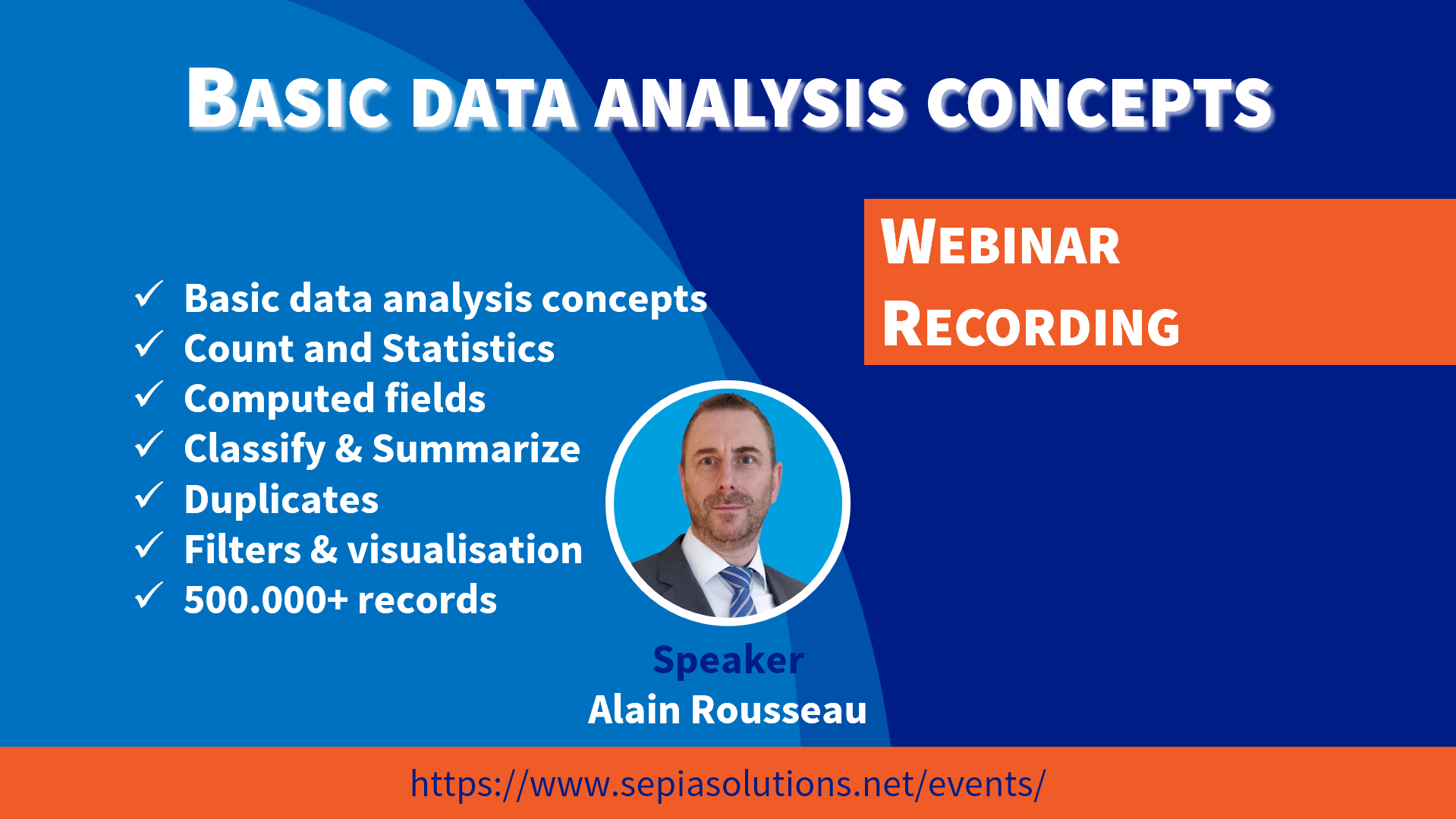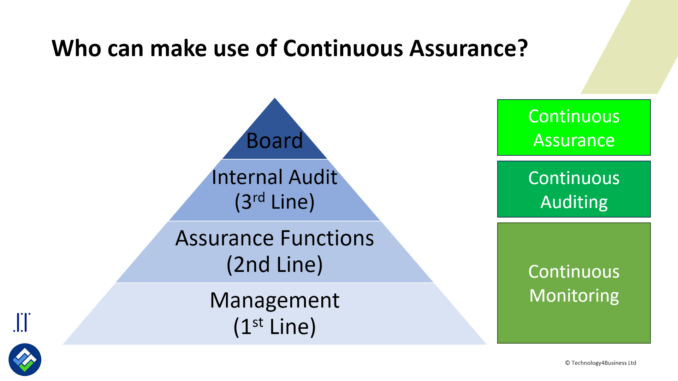
Continuous Assurance with data analysis
In this webinar recording Neil and Alain share their combined experience of implementing Continuous Assurance across the organisation in a cost effective and timely manner. They illustrate how data analytics can deliver more extensive assurance by automating the analysis of large data sets from various sources, resulting in near real-time information.
The presentation starts of by defining data analysis and illustrating the limitations of a traditional audit approach before introducing the term “Continuous Assurance“.
Neil and Alain then explore and debunk barriers commonly preventing organisations from implementing Continuous Assurance.
This presentation includes examples and use cases as well as pricing information before the speakers’ closing remarks guide you on your way to implementing Continuous Assurance based on data analysis.
Watch the full recording …
or dive straight into the chapter of your choice …
Click on the links below to watch the video on the Sepia Solutions Youtube channel starting at that specific section.
Introductions
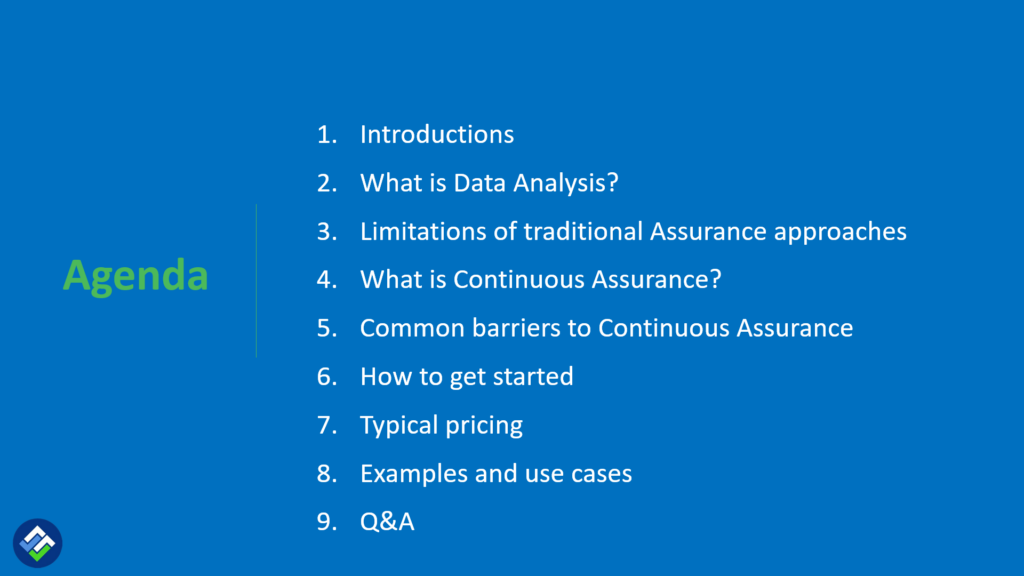
After laying out the webinar’s house rules, Neil sets out the content for this webinar. Then both Alain and Neil introduce themselves as well as their respective businesses (Sepia Solutions and Technology4Business).
What is Data Analysis?
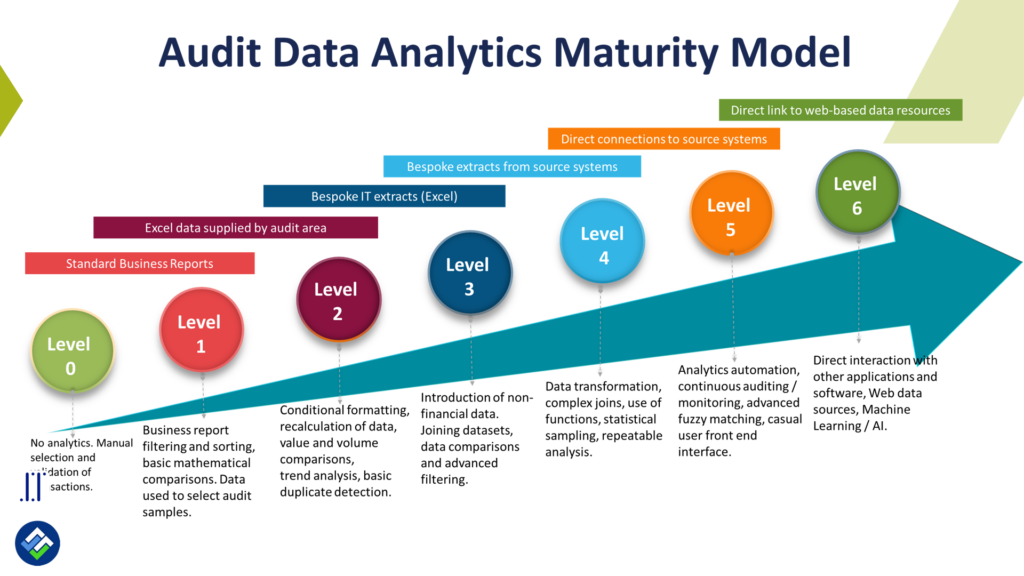
Neil explains how we define “data analysis” and why it is so important for managers as well as assurance teams. He also illustrates the value of data analysis with practical applications and discusses the data landscape.
Limitations of traditional assurance approaches
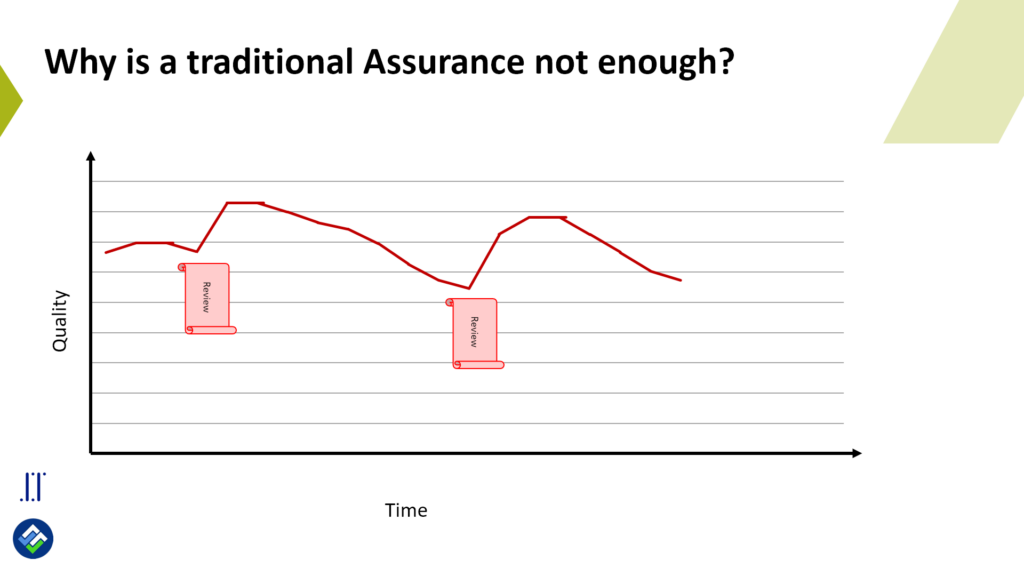
What are typical limitations of a traditional audit, or standard assurance approaches? How valid is a sample, really? How frequently is the data analysed, for which periods and how long after the facts? How vigilant does management remain in between reviews?
What is Continuous Assurance?
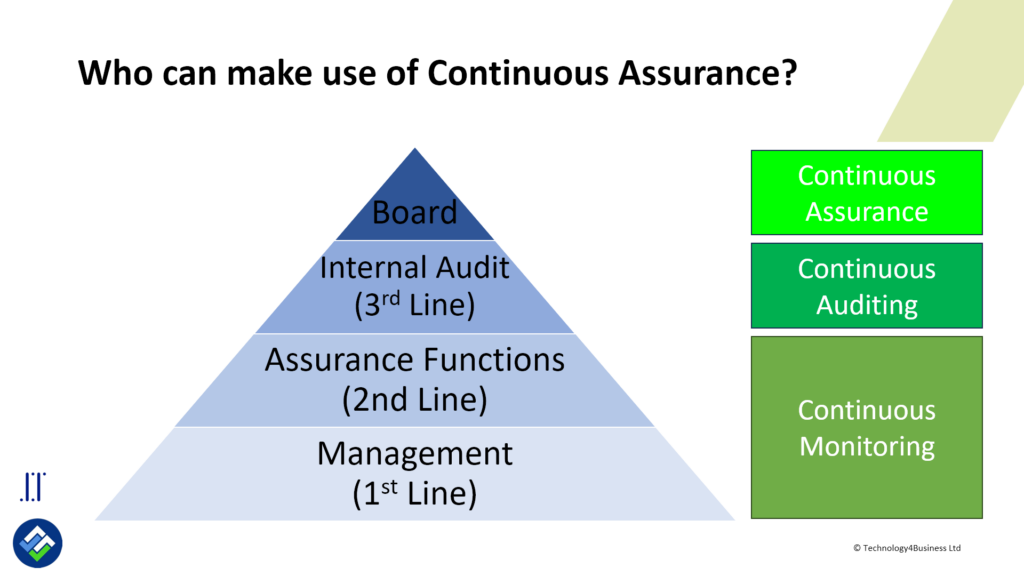
Neil highlights the differences between a traditional review and continuous monitoring of processes. He underscores the significant advantages of the continuous assurance derived from the frequent and automated analysis and while also illustrating who benefits.
Common barriers to Continuous Assurance
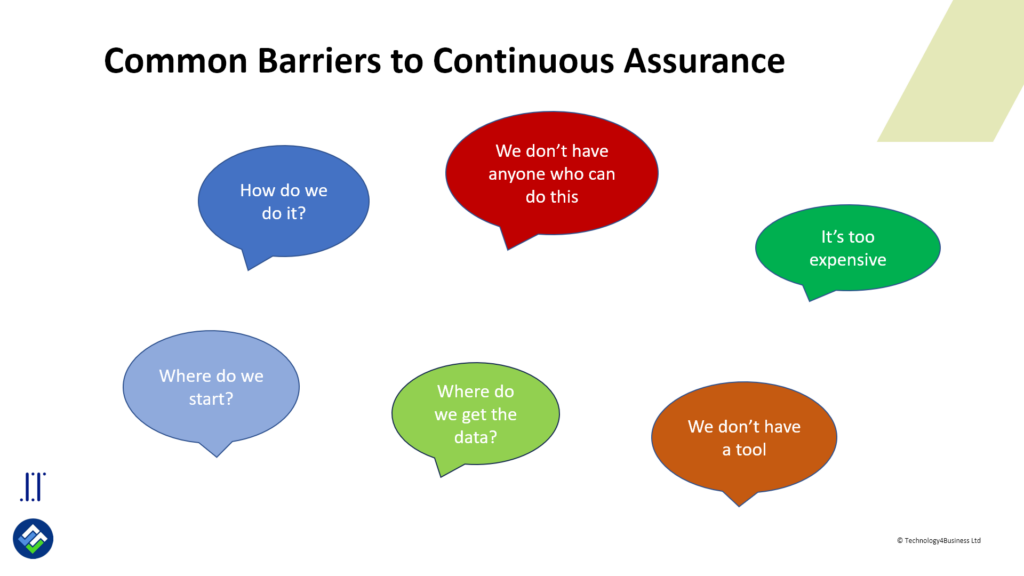
What are common excuses for not doing continuous assurance? Perhaps a lack of tooling, resources, or know-how? Is your data accessible, valid and clean? Is the analysis available to all 3 lines of defence? Or is any solution considered to be too expensive?
Getting started with continuous assurance
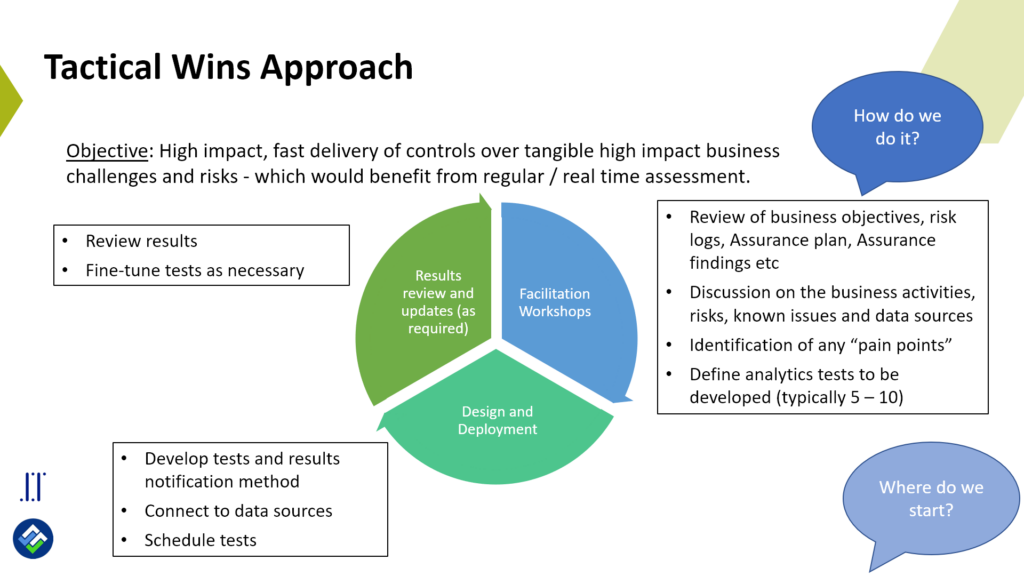
Neil explores two possible paths to implementing Continuous Assurance, each with their own characteristics. In the more traditional or “incremental approach” review tests are automated and expanded over time. On the other hand, the “tactical wins approach” delivers results far more quickly.
Typical pricing
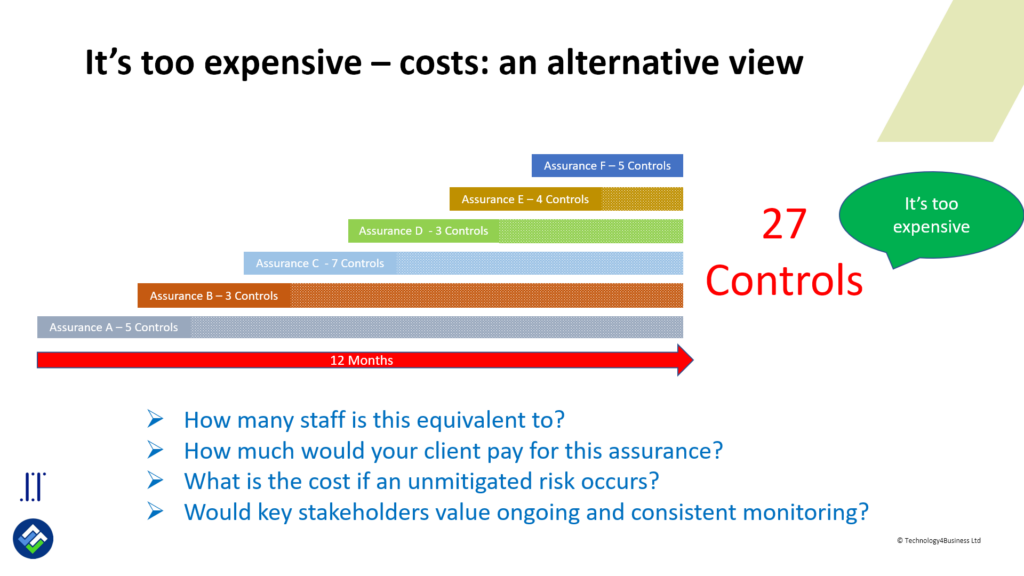
Neil considers pricing for both the “incremental approach” and the “tactical wins approach” with realistic budget figures. Not only focussing on costs, Neil’s arguments also touch on the ROI (Return on Investment) and turnaround time of a project as well as the cost of not doing it (quickly).
Examples and use case
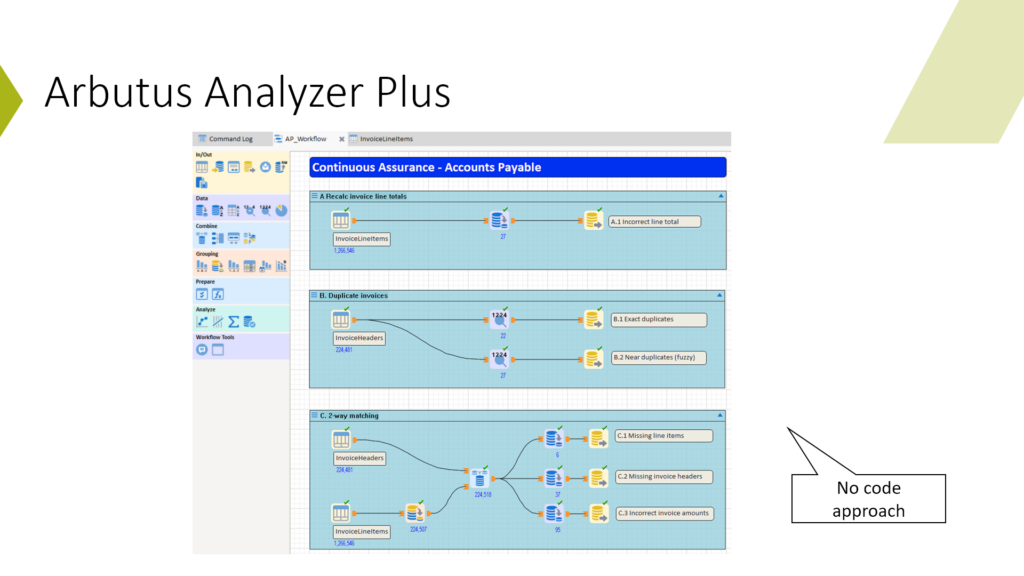
Alain sets out 3 types of controls in a process:
A. Recalculation of totals
B. Duplicate invoices
C. 2-way matching
The main message is the approach, not so much the business process or even the specific (and very simple) controls. Intead, the key point is how you can build and automate your own tests in the Arbutus Analytics platform.
Conclusion: What does this mean in practice?
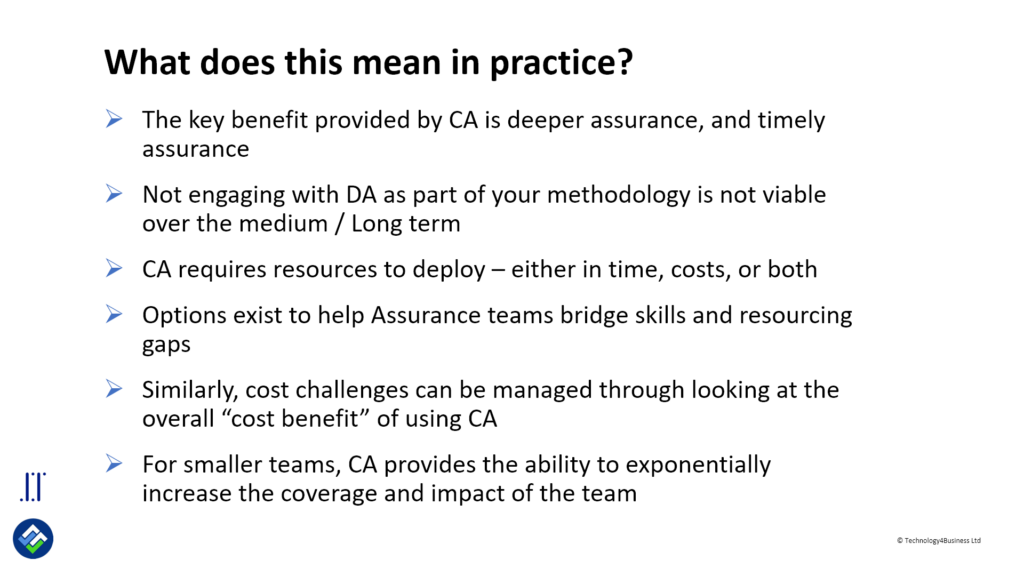
Neil summarizes the session by stressing the benefits of continuous assurance and how even a small team can have spectacular impact on the organisation. Can one even afford, really, not to use data analytics on a structural basis?
Questions and answers

We close the session with the classical Q&A, addressing questions like “Can Arbutus extract data from SAP?” , “Can Arbutus connect to ERM systems?”, “What if the tests have already been done on the 1st and 2nd line (of defence)?”.
Speakers

Neil Macdonald is the co-founder of Technology4Business Ltd and a member of the IIA Data Analytics forum steering group. He is a former Head of Audit with over 25 years’ experience and holds the CMIIA and QIAL qualifications.
Neil has worked for a range of organisations including Deutsche Bank, AXA, Sainsbury’s and the Bank of England. At the Simplyhealth Group, Neil successfully introduced both data analytics and continuous audit into the audit team.
Neil is a regular presenter at both national and international conferences and delivers audit specific data analytics training for the IIA and to clients worldwide.

Alain Rousseau is the driving force behind Sepia Solutions. He has focussed on audit software tools since 2007 and implemented data analysis tools and audit management tools at dozens of organisations in different departments.
With a mixed background of technology and business, Alain is the ideal interface between business users and software developers. His in-depth understanding of both the software and audit profession also makes him an excellent trainer and consultant for these software packages.
You might be interested in other planned events:
Sorry, no more events are currently planned (or we haven’t updated our website).
Feel free to reach out to us, or check again later.


